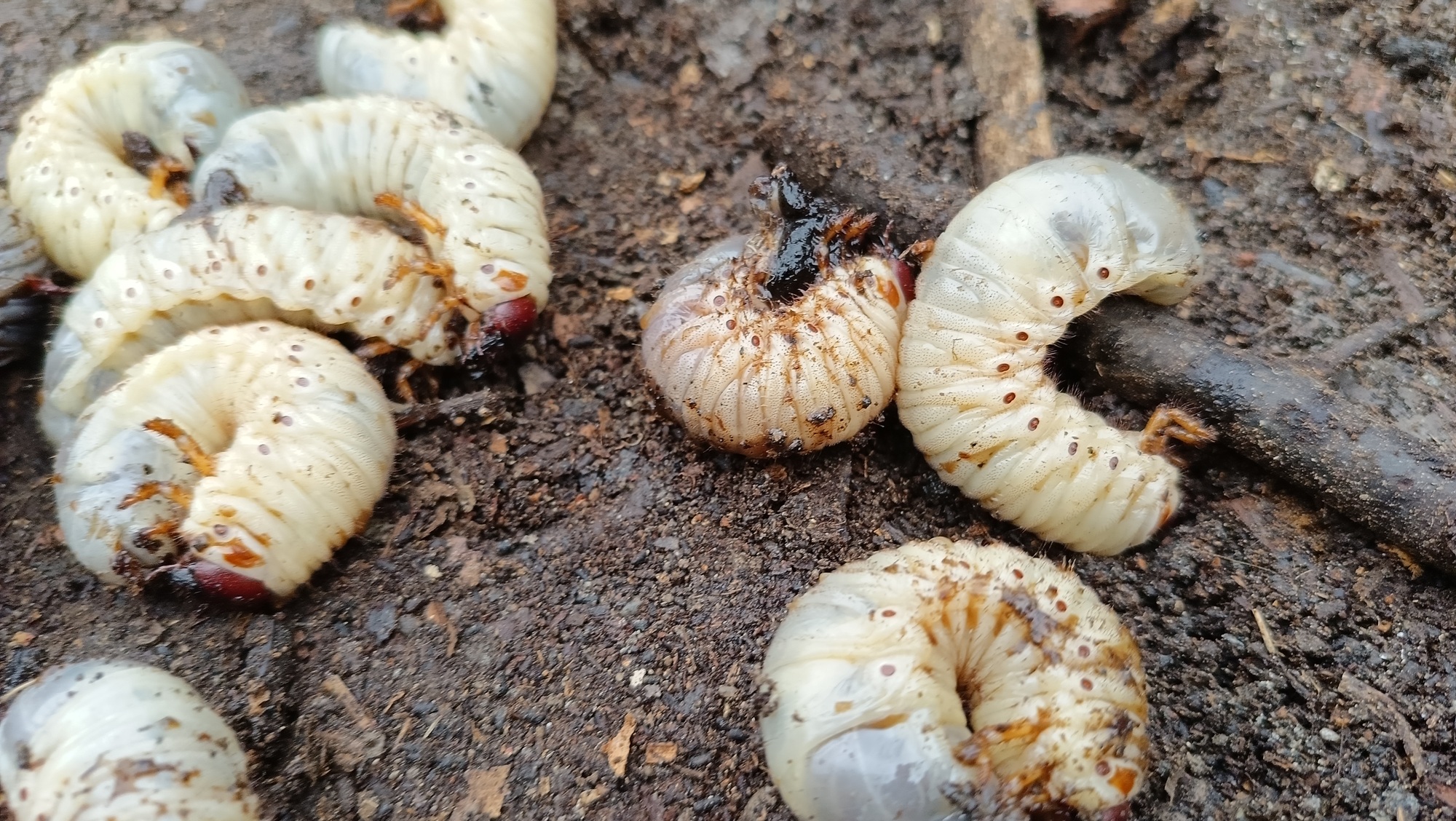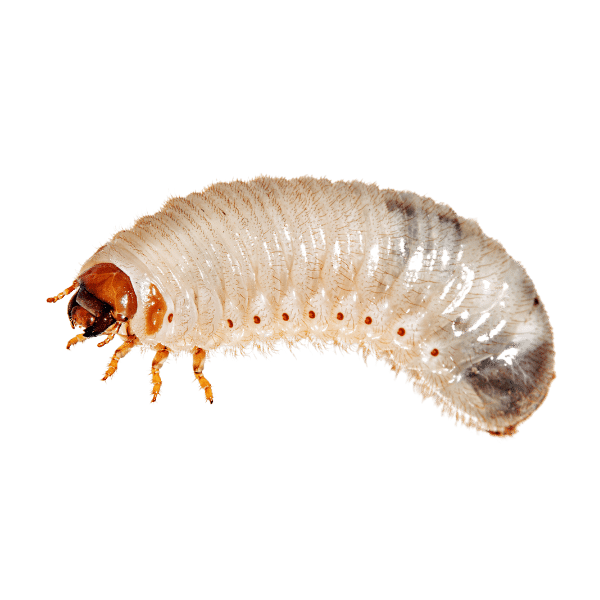Intro to the Insect:
Grub worms are the larval stage of beetles, including Japanese beetles and June bugs, and are notorious for feeding on the roots of turfgrass. In North Alabama, their activity peaks during late summer and early fall, when they cause significant damage to lawns by severing roots and creating large dead patches. Grub worms thrive in well-irrigated, fertilized lawns, making them a common problem in residential areas. Their ability to weaken grass makes lawns more vulnerable to drought stress and secondary pests.
Which Ones Are Common in My Area and How Can I Identify Them?
The most common species in North Alabama are Japanese beetle grubs (Popillia japonica). Identifying characteristics include:
- Size: C-shaped larvae about 1 inch long.
- Color: White bodies with brown heads.
- Signs of Damage: Dead or brown patches of grass that pull up easily due to root damage.
Spotting grub worms early is essential to prevent widespread lawn damage.
How Did I Get the Insect?
Grub worms are attracted to:
- Lawns with well-maintained turf, which provide ample food.
- Areas with beetle activity, as adults lay eggs in the soil.
- Overwatered or fertilized grass that promotes larval development.
Understanding their lifecycle helps reduce conditions that attract them.
What Effects Does This Have on My Lawn or Outdoor Space?
Grub worms cause severe damage by feeding on grass roots:
- Dead Patches: Grass turns brown and dies, leaving bare spots.
- Weak Lawns: Turf becomes loose and easy to pull up.
- Secondary Damage: Skunks, raccoons, and birds dig into lawns to feed on grubs.
Untreated infestations can result in extensive and costly lawn repairs.

How Long Do They Live?
Grub worms typically have a one-year lifecycle:
- Eggs hatch in midsummer.
- Larvae feed on roots until fall, overwintering in the soil.
- Pupae emerge as adult beetles the following spring.
Their feeding during late summer causes the most visible damage.
How Do I Prevent Them?
Preventing grub worms involves proper lawn care and monitoring. Steps include:
- Avoid Overwatering: Keep soil moisture balanced to discourage egg-laying.
- Use Preventative Treatments: Apply insecticides in early summer to target grubs before they hatch.
- Aerate the Soil: Promote strong root systems by reducing compaction.
Combining these practices helps reduce grub worm infestations and lawn damage.
How Guardian South Helps:
We offer effective grub worm treatments that target larvae while preserving beneficial insects. Our lawn care programs include preventative measures to keep your turf healthy and resilient.

